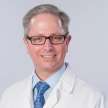How the Skills You Nurture Can Make You a Better Human
Something you don’t have an aptitude for may turn out to be an important skill in your life.

What is considered a skill? Is it something you’re born with, something you nurture? I, Dr. James Goydos, am a senior surgical oncologist, a former tenured professor of surgery and tumor biology, I have three patents, and I ran an NIH-funded research laboratory for 15 years. One could say I do have some skills. However, I don’t consider any of these accomplishments particularly noteworthy, as I enjoyed all of these activities and have a knack for this type of work.
We are all born with innate abilities, all we really need is for us or someone else to recognize these abilities and nurture them.
I believe a skill worth bragging about is one you find important in your life, but you have no particular aptitude for. For instance, I have trouble learning foreign languages, so if I was forced into a situation that required that I learn Japanese or Russian — and I accomplished this — I would be very proud of the new skill I had developed.
One thing I (and most people) have had difficulty doing is public speaking. Growing up I never had the need nor opportunity to speak before large crowds including during college, medical school, residency, and my surgical oncology fellowship.
However, I found out early in my career that an academic physician had the obligation to educate not only the students at one’s institution, but also the private practitioners in the community and academics at other institutions. If you are the local expert in some field, you are expected to keep up with developments and give regular presentations to pass this knowledge along to others.
One of the first opportunities I had to speak in front of a very large audience was in 1998 at the American College of Surgeons Annual meeting in New Orleans. I was asked to present the results of a study I had conducted and found myself facing over 2,000 people in a massive auditorium at the New Orleans Convention Center. I remember vividly looking out over that massive crowd getting tunnel vision as I walked up to the podium. The talk itself went well because it was my data, and I could focus on the giant screen behind me as I spoke.
As I finished this hour-long ordeal, I thought the worst was over. I was wrong. After any large talk, people are given the opportunity to approach microphones in the aisles and ask questions of the speaker. As I looked out at the audience, I saw that at least ten people had lined up at the different microphones, and inwardly I groaned.
The first person to ask a question was a patient advocate. Patient advocates are non-physician laypeople who represent the interests of patients at meetings and other events. These people are often cancer survivors or family members of cancer patients and usually ask very difficult questions. Sure enough the woman at the microphone told me she was a patient advocate working for a large not-for-profit support organization and her questions was:
“Your lecture was very interesting, but I was disturbed when you mentioned multiple times that patients had been cured. As you surely know it is very difficult to say a patient is cured when any cancer can return even years later. So I ask you, what is your definition of when a cancer patient is truly cured?”
At the time I was a very young 37-year-old physician at my first major meeting since becoming an attending surgeon. I stood there panicking for a moment when suddenly I blurted out without much thought, “A patient with a history of cancer is cured when they die of something else.” The room had gone very quiet as everyone turned to look at the patient advocate.
The woman looked at me for a second, nodded, and said “Ok”, and walked back to her seat. From then on, the rest of the questions went very well and I learned to enjoy public speaking.
To date I’ve given over 200 such talks before crowds ranging from a few dozen to over 3500. I am very proud of my ability to stand in front of a large, diverse audience and impart knowledge: a skill I never thought I would need, but one that has been indispensable over the past 20 years. Sometimes, the skills you may not be born with, but nurture, make you a better person.
About Dr. James Goydos
Dr. James Goydos is an expert in melanoma research and specialist in surgical oncology with an M.D. from Rutgers University. With over 20 years of experience as a Professor, Surgeon, and Clinical Trial Lead, he is a leading expert in his field.
Subscribe to James Goydos’ newsletter. Follow me on Good Men Project, Newsbreak, Hubpages, Loop, Medium, Instagram, Facebook,YouTube, Medika Life, Doximity, Github, Kaggle, Vocal, LinkedIn
About the Creator
James Goydos, MD
James Goydos MD - Doctor, surgeon & expert on skin cancer. M.D. from Rutgers. Experience as a Professor of Surgery, Surgical Oncologist, & clinical trial leader. Writing on cancer, detction with camera / computer vision and healthcare.






Comments
There are no comments for this story
Be the first to respond and start the conversation.